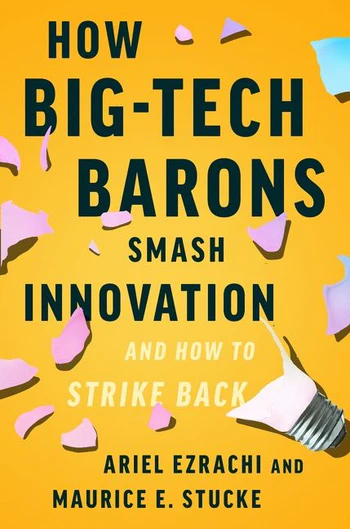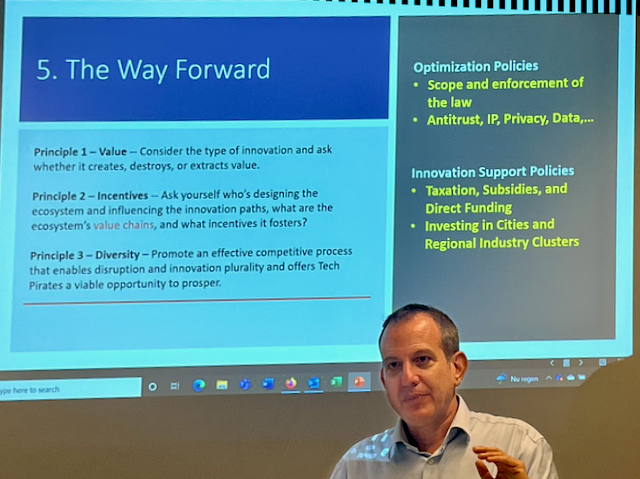How Big-Tech Barons Smash Innovation
I enjoyed listening to Ariel Ezrachi and Maurice Stucke’s new book on competition policy and innovation more than I expected (given the subject matter rather than the authors ?). How Big-Tech Barons Smash Innovation—and How to Strike Back is beautifully written and full of zingers like “CSI antitrust market definition fetishism” (sorry, a very dweeby competition joke ?)
The authors’ core argument is the billion+ user “ecosystems” of Big Tech (specifically GAFAM and their Chinese equivalents) are giving these firms immense market power, and gigantic valuations based on the future scarcity of the bottlenecks they control. These “Tech Barons” are using this power to shape the supply and demand for tech innovation towards “sustaining” innovations which exploit and extract profits from users and exclude competitors, rather than “disruptive” innovations from “Tech Pirates”.
The barons hold positional (sociology) or architectural power as ecosystem orchestrators (the latter recently recognised in a decision of India’s competition commission against Google.) The ”pirates” are closer to Schumpeter’s ideal of waves of “creative destruction”, which reshape whole markets and put power in the hands of consumers.
This political economy has led to the evolution of “toxic innovations” (the authors particularly single out behavioural advertising), with their now well-known harmful effects on society as a whole, such as widespread privacy invasions, polarisation, and hateful online discourse. The contribution of value by users is not being fairly distributed.

For me the core contribution of the book is bringing together business research on innovation with the more law and economics-focused world of competition policy. As the authors note, the latter is supposed to enable the former — yet key legal judgments have led competition enforcers to focus on micro-details such as market definition, while missing the big picture (as well as smoking guns of direct anticompetitive effects which lack precisely measurable econometric data).
The Tech Barons are by no means the innovative, R&D-intensive giants of popular imagination. One chapter nicely tears apart this and other “innovation myths” promoted by the barons’ PR and public affairs teams. There is also some thought-provoking material on the way they are using their immense resources (particularly finance and access to data) to reshape even academic research to their benefit.
Ezrachi and Stucke welcome the competition law reforms covered in the penultimate chapter, such as promoting interoperability in the US ACCESS Act and EU Digital Markets Act, but suggest most are backward-looking and will not go far enough — their metaphor is of legislators shooting at moving targets which can anticipate and change course.
The final “where next” chapter has some interesting ideas going further, such as law reform in important neighbouring areas such as intellectual property law (e.g., should patents be granted for “toxic” innovations?) as well as the role of diversity, innovation financing, and the role of cities as innovation hubs.
I’m dismayed at how much other competition writing seemingly exists in a world where privacy, freedom of expression and other areas of tech regulation have not been broadly discussed since the late 1960s. This book does better. I think it opens up many interesting avenues of discussion of holistic regulation, such as tightening patent conditions for harmful technologies and their applications.
Another thought it prompted for me would be linking data protection by design in the EU’s General Data Protection Regulation (Art. 25) with broader promotion of socially-beneficial innovations. Chris Marsden and I had many such other ideas in our book Regulating Code.
This is an enjoyable, informative and thought-provoking book. I hope it is widely read!
PS This was the first time I listened to an audiobook. It was useful to fill some spare travel time, but I found it a slightly frustrating experience — I read so much faster, my mind often wandered (and I started reading simultaneously at times, and even fell asleep on a bus journey ?). It will also be much harder to go back to the material in future, which I frequently do when writing. I’ll be sticking to eBooks in future!
